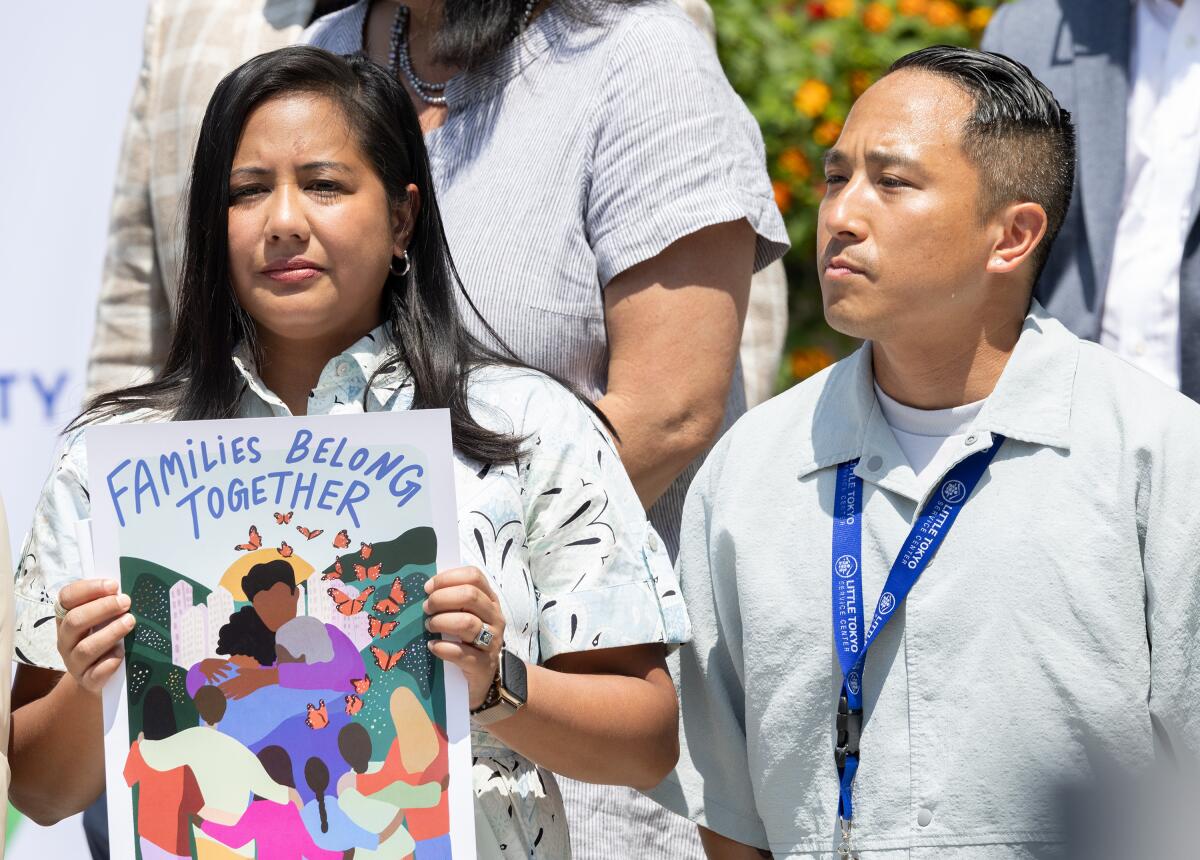Vendors on NYC’s Canal Street say they were harassed and asked to show papers in immigration sweep
NEW YORK — A day after a mass of federal agents questioned street vendors and sparked protests on Manhattan’s Canal Street, sellers were scarce on the busy strip. Some who did venture out Wednesday, though, were disheartened or riled up by a sweep in which they said people, including U.S. citizens, were pressed to show their papers.
Federal authorities said 14 people, including immigrants and demonstrators, were arrested in Tuesday’s sweep. The Department of Homeland Security said it was a targeted operation focused on the alleged sale of counterfeit goods, and Immigration and Customs Enforcement acting Director Todd Lyons said it was “definitely intelligence-driven.”
“It’s not random. We’re just not pulling people off the street,” he told Fox News on Wednesday.
But some vendors saw it as an indiscriminate and heavy-handed crackdown by masked agents who queried a wide swath of sellers.
Awa Ngam was selling sweaters Wednesday from a table at a Canal Street intersection where at least one of her fellow vendors was taken away the previous afternoon.
She said she also was asked for ID, showed it, and then for her passport, which she doesn’t carry around. Agents quizzed her about how she had come to the U.S., but they eventually backed off after her husband explained that she’s an American citizen, she said.
“They asked every African that was here for their status,” Ngam said.
She returned to the spot Wednesday unafraid but upset.
“I’m saddened because they should not walk around and ask people for their passport in America,” said Ngam, who said she came to the U.S. from Mauritania in 2009. She added that if not for her legal immigration status, she would be fearful: “What if they took me? What would happen to my kids?”
Some other sellers decried the sweep as harassment. Others were keeping a low profile and shied from speaking with journalists.
Signs freshly posted on streetlights mentioned Tuesday’s sweep and urged people at risk of detention to call an immigration law group’s helpline.
Separately, state Atty. Gen. Letitia James, a Democrat, asked New Yorkers to send in photos or videos of Tuesday’s immigration sweep so that her office could assess whether laws were broken.
Law enforcement raids aimed at combating counterfeiting are relatively frequent on Canal Street, which is known for its stalls and shops where some vendors hawk knockoff designer goods and bootlegged wares. Federal authorities often team up with the New York Police Department and luxury brands on crackdowns aimed at shutting down illicit trade.
But the sight of dozens of masked ICE and other federal agents making arrests drew instant protests.
Bystanders and activists converged at the scene and shouted at the agents, at one point blocking their vehicle. ICE, Border Patrol and other federal agents tried to clear the streets, sometimes shoving protesters to the ground and threatening them with stun guns or pepper spray before detaining them.
Nine people were arrested in the initial immigration sweep, DHS spokesperson Tricia McLaughlin said. Four more people were arrested on charges of assaulting federal law enforcement officers, she said, adding that a fifth was arrested and accused of obstructing law enforcement by blocking a driveway.
McLaughlin said some of the people arrested had previously been accused of crimes, including robbery, domestic violence, assaulting law enforcement, counterfeiting and drug offenses.
The sweep came after at least two conservative influencers shared video on X of men selling bags on Canal Street’s sidewalks.
While clashes between immigration authorities and protesters have played out in Los Angeles and other cities, such scenes have been rarer on New York City streets, which Mayor Eric Adams has attributed in part to his working relationship with President Trump’s administration.
Adams, a Democrat, said city police had no involvement in Tuesday’s immigration sweep.
“Our administration has been clear that undocumented New Yorkers trying to pursue their American dreams should not be the target of law enforcement, and resources should instead be focused on violent criminals,” he said.
Peltz and Offenhartz write for the Associated Press.

